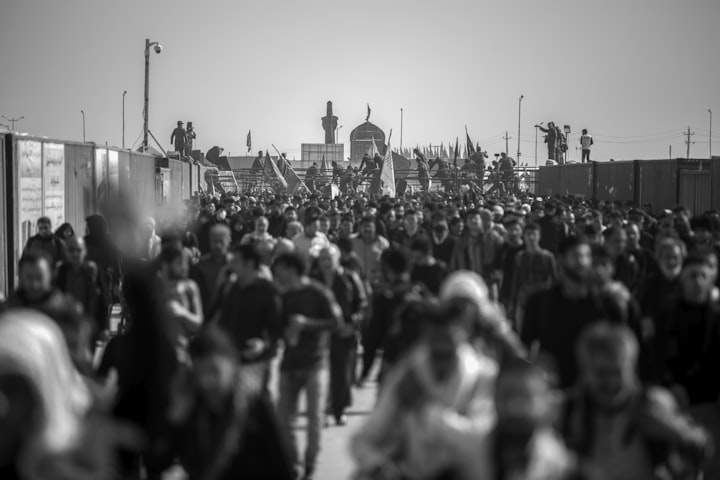Historical drama and building a knowledge society
Building historical drama needs to define goals

History provides drama makers with many opportunities to attract audiences, build their awareness of their identity, and shape their self-image, and many countries are searching in their history for achievements and victories that can contribute to increasing their people’s pride in belonging to them, and prove to the world that they have made historical civilisation achievements, and participated in developing human civilisation.
But researching history and telling the stories of peoples’ struggles needs political will before technical and artistic capabilities. At the end of the 20th century, many countries began entering the historical drama war, and production companies began creating historical television series, and there are important experiences that need in-depth studies, specifically those of Britain, Canada and America.
Building historical drama needs to define goals, as it is no longer an issue of artistic creativity presented by an author, director and actors, but there are experts in the field of mental image, influence, propaganda and media, and they have a role that is more important than the quality of the artwork, the techniques used in it, and the attractiveness of the actors.
The series presented by American, British and Canadian production companies work to achieve far-reaching political, social and cultural goals, the most important of which is building mental images and stereotypes.
The authentic leadership is the one that represents an extension of the people’s struggle, and is inspired by its historical experiences, and the value system produced by these experiences, and uses it to build the future. Therefore, the stories of authentic leaders who were inspired by the system of values resulting from historical experiences, and struggled to achieve the goals associated with them, the most important of which are justice, freedom and independence, can be a material for a historical drama that contributes to preparing a new generation of leaders, and teaches young people the values and ethics of leadership.
Cross-Cultural Connection
Historical series have become an important field for cross-cultural communication, as they influence many peoples and contribute to building long-term relationships with them by sympathising with their issues, humanising their stories of struggle, glorifying their heroes, and admiring their values and achievements.
Therefore, historical drama has become cross-cultural, carrying messages to other peoples, contributing to building the mental image of a state or nation, and expanding the base of common values and goals that can be a basis for sympathy, exchange of interests, and participation in the struggle to achieve great goals such as resisting colonialism.
Therefore, the production of historical drama series is not for the purpose of entertainment, or the enjoyment of viewers, but a process that aims to achieve many political and cultural goals. The process of transforming the history of the state into a drama is a cross-cultural communication that contributes to increasing the state’s presence at the global level with its culture, values and historical achievements, so the series is not just events chosen from history, but it should depict life in a historical era, people’s interaction with events, and their struggle for Change.
This means that historical drama is not a history written using scientific methods, but a process of depicting life using image, interaction, human feelings, words and messages.
However, in order to maintain the credibility of historical drama, we must adhere to the authenticity of events, avoid bias, injustice, deception and falsification, and respect ethics and the values of honesty and justice, because the credibility of historical drama is one of the most important foundations for the quality of artwork.
collective memory
Historical drama contributes to building the collective memory of the people or nation, and is a necessity for the life of nations and states, and historical experiences contribute to building the future and rationalising the decision-making process. Just as the individual who loses his memory has no meaning to his life, and loses his desire to continue it, and wishes for death, likewise the people whose history is hidden from him, and who does not find someone to tell his story, loses the ability to build, achieve and create.
This means that historical drama can be used to revitalise, preserve and stimulate collective memory, and to transmit cultural heritage through generations, with all the principles and values that this heritage holds, which constitute an agreement between the people and state institutions. This agreement on principles and values constitutes a basis for governance. A democratic experiment cannot succeed in a state if the people do not agree on a value system that is inspired by its historical experience, which is necessarily distinguished from the experiences of others.
The success of democratic values in one country does not necessarily mean the possibility of their success in another. These values must stem from historical experiences that the people are proud of, and see as a civilised achievement for them. There are many countries that have wasted their historical experiences, and have not been able to benefit from them because their rulers have hidden those experiences and prevented the process of photographing them and presenting them to generations, such as the experiences of the national struggle.
driving qualifications
All peoples love stories, especially those related to the struggles and heroism of fathers and grandfathers. Therefore, telling the stories of this struggle is one of the most important qualifications of leadership. A leader who cannot tell the story of his people's struggle and the civilised achievements he made cannot achieve success in democratic rule, but he can continue to rule by using coercion, even though he realises that his people hate him and wishes to witness the moment of salvation from him.
It is also the authentic leadership that represents an extension of the people’s struggle, and is inspired by its historical experiences, and the value system produced by these experiences, and uses it to build the future. Therefore, the stories of authentic leaders who were inspired by the value system resulting from historical experiences, and struggled to achieve the goals associated with them, the most important of which are justice, freedom and independence, can be a material for a historical drama that contributes to preparing a new generation of leaders, and teaches young people the values and ethics of leadership.
There are many great leaders in Islamic history whose life and struggle stories can form the basis for building a historical drama industry that motivates peoples to struggle and build the future, and pride in self and identity. The experience of Omar Al-Mukhtar’s movie shows that peoples need to know the progress of their heroes and leaders of their struggle. Arab peoples are keen to watch this movie frequently because it raises pride in the struggle against colonialism, and builds their moral strength in confronting it despite the lack of material strength.
People love heroism and heroes, so their stories form the basis of historical drama, and these stories contribute to building new generations, preparing them to defend the land, values and principles, which is an important process for building the strength and continuity of states. Stability is not achieved by satisfying the material needs of the people or maintaining security. Historical drama is used to satisfy people’s needs for self-esteem, pride in identity, strengthening belonging to the nation, knowing its symbols, the history of its heroes and their struggle for freedom. These distinct human needs are more important than people’s need for bread and security. That the historical drama industry plays an important role in building and preserving countries and increasing their global presence.
Historical drama and building knowledge societies
The future is based on countries investing their history in building knowledge societies and building their economies on knowledge. Therefore, countries need to teach history to young people, and motivate them to discover its knowledge treasures that contribute to shaping the people’s culture, increasing their creativity and producing knowledge, and thus historical drama can contribute. In building knowledge societies, and in motivating people to produce knowledge and share it with others.
A people who imports knowledge and does not produce it will have no role in the 21st century, and history is what can increase the capabilities of the people and the desire of its members to struggle to discover the secrets of the universe, creativity and innovation. The power to research, act, produce ideas, and share with others the achievement of common goals.
Peoples and countries need a historical drama characterized by credibility and quality, so countries should plan to rehabilitate researchers in the field of history to discover their historical experiences and achievements, and to interpret history using new scientific methods and tools, and to work to liberate history from those racist Western myths that orientalists produced based on The Thousand Nights and night.
The new generation of bold and courageous researchers can build the scientific basis for creating a historical drama that restores the nation's collective memory, and motivates it to embark on a new stage of the struggle against colonialism, building a knowledge society, and achieving political, economic, cultural and civilizational independence.
Building that industry can be one of the most important civilizational achievements of the nation in the 21st century, and it can contribute to increasing the nation’s strength and its launch to build a knowledge society. Therefore, I strive to build the scientific basis for creating an Arab historical drama that contributes to achieving the nation’s renaissance and building a knowledge society.






Comments
Roxanne Mann is not accepting comments at the moment
Want to show your support? Send them a one-off tip.